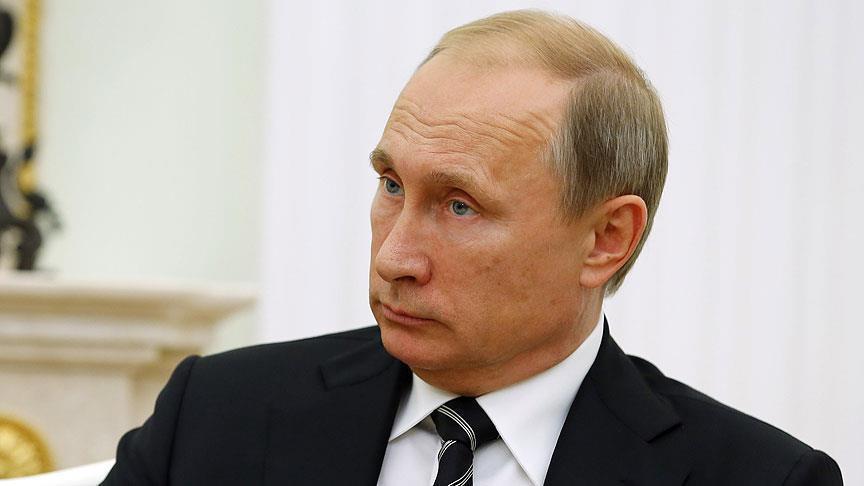‘Secret money network tied to Putin’
Leaked documents from Panama-based firm raise questions about offshore scandal

Berlin
BERLIN
Russian President Vladimir Putin’s inner circle shuffled billions of dollars through banks and offshore companies, leaked documents from Panama-based law firm Mossack Fonseca have revealed.
Documents published by Germany’s Suddeutsche Zeitung and the International Consortium of Investigative Journalists (ICIJ) have exposed a purported clandestine network tied to the Russian president, which channeled money to people and companies linked to Putin.
The reports claim Sergey Roldugin, a world-class cellist and conductor linked to Putin, secretly co-owned at least three shadow companies founded between 2007 and 2008.
A copy of his passport and various documents signed by him were among the leaked files.
Offshore companies owned by Roldugin accumulated wealth through suspected payments, fake deals, fake compensation payments and never repaid credits provided by a bank controlled by the Russian government.
The offshore companies were managed by employees of St. Petersburg-based Bank Rossiya, referred to as “Putin’s personal cashbox” in the report.
The ICIJ investigation said Roldugin has been a “behind-the-scenes player in a clandestine network operated by Putin associates”, which has shuffled at least $2 billion through banks and offshore companies.
The documents name billionaire brothers Arkady and Boris Rotenberg, who enjoyed a close friendship with Putin dating back to 1960s, as having a role in the money network.
According to the Mossack Fonseca files, offshore companies controlled by Arkady Rotenberg made huge payments in recent years to the Putin network.
The secret files, widely referred to as the Panama Papers, contain 11.5 million documents, some 2.6 terabytes of data – more than that released by U.S. intelligence informant Edward Snowden and WikiLeaks.
The documents point to 140 politicians worldwide, among them 12 current and former national leaders, claiming they worked with Mossack Fonseca to establish shadow companies for global transactions and money laundering.
The leaks also showed that the two cousins of Syrian President Bashar Assad, Rami and Hafez Makhlouf, established offshore companies in the late 90s with the help of Mossack Fonseca, and made a fortune using family ties.
“For years, any foreign company seeking to do business in Syria had to be cleared by Rami, who controlled key economic sectors such as oil and telecommunications,” ICIJ said in its report.
“Hafez, a general in charge of Syria’s intelligence and security apparatus, has been suspected of helping his older brother intimidate business rivals,” it added.
Suddeutsche Zeitung reported that it obtained the documents from an anonymous source over a year ago who did not demand anything in return.
The daily shared the documents with the ICIJ. Around 400 reporters from more than 80 countries took part in the investigation over the past 12 months, according to the newspaper.
Panama-based law firm Mossack Fonseca dismissed any wrongdoing, and warned the German daily that unlawfully obtaining documents of a company is a crime.
“We are responsible members of the global financial and business community,” the firm said in a statement sent to the daily in response to allegations.
“For 40 years, Mossack Fonseca has operated beyond reproach in our home country and in other jurisdictions where we have operations. Our firm has never been accused or charged in connection with criminal wrongdoing,” it claimed.
Anadolu Agency website contains only a portion of the news stories offered to subscribers in the AA News Broadcasting System (HAS), and in summarized form. Please contact us for subscription options.







